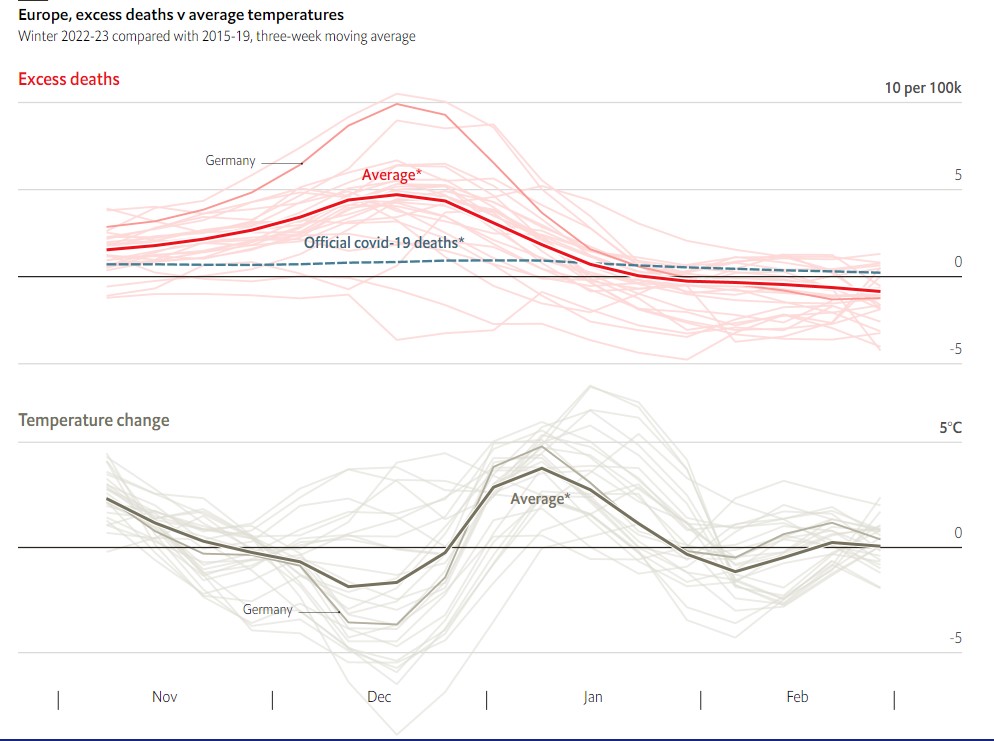The Economist: Higher energy prices may have killed more Europeans last winter than COVID-19
High energy prices are more than an inconvenience. They are deadly. A recent article from The Economist suggests that high energy prices in Europe were responsible for 68,000 premature deaths last winter, more than COVID-19.
The graph below shows excess deaths exceed the deaths of COVID-19, and these deaths increased as temperatures dropped.

High energy prices can cost lives because they discourage people from heating their homes properly, and living in cold conditions raises the risk of cardiac and respiratory problems. The Economist notes that they predicted expensive energy prices could result in between 22,000 and 138,000 premature deaths during a mild winter.
Across the 28 European countries The Economist investigated, there were 149,000 excess deaths between November 2022 and February 2023, equivalent to a 7.8 percent increase. Looking across countries reveals that those with the highest excess deaths typically experienced the most significant increases in fuel costs.
Using a statistical model, The Economist estimated that a price rise of around €0.10 per kilowatt hour—about 30 percent of last winter’s average electricity price—was related to an increase in a country’s weekly mortality of around 2.2 percent. If electricity last winter had cost the same as it did in 2020, their model would have expected 68,000 fewer deaths across Europe, a decline of 3.6 percent.
The Economist notes that deaths in Europe might have been higher had governments not intervened in energy markets (although lower prices bid up demand, causing problems elsewhere in the world). Using data from Vaasaett, a consultancy, they estimated how many excess deaths would have occurred had bills not been reduced by price caps or lower sales taxes. Across 23 countries, their model finds that these subsidies saved 26,600 lives.
Europe actually got incredibly lucky last winter because it was the second-warmest winter on record for the continent. Had it been a cold winter, energy consumption, prices, and premature deaths likely would have been much higher.
The life-and-death nature of high energy prices makes it crucial to understand why they were so high last winter. Vladimir Putin’s invasion of Ukraine no doubt disrupted gas supplies to Europe, but why had our allies across the pond allowed themselves to become so dependent upon Russian natural gas in the first place?
European nations became dependent upon Russian gas because they shut down too many nuclear and coal-fired power plants and sought to replace them with a combination of wind, solar, and natural gas. Many of the same countries, like Germany, that were using rising quantities of natural gas banned the use of hydraulic fracturing to produce the energy they needed domestically.
As a result, energy prices spiked when Russia turned off the gas, and the rising costs stemming from irresponsible energy policy contributed to the premature deaths of 68,000 people. Americans would be wise not to repeat these mistakes lest we suffer similar consequences.